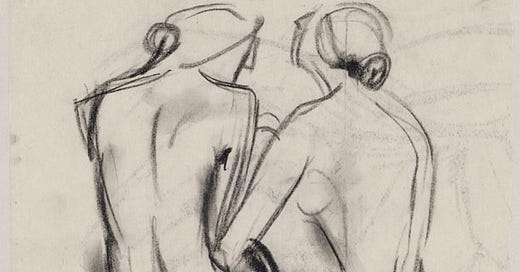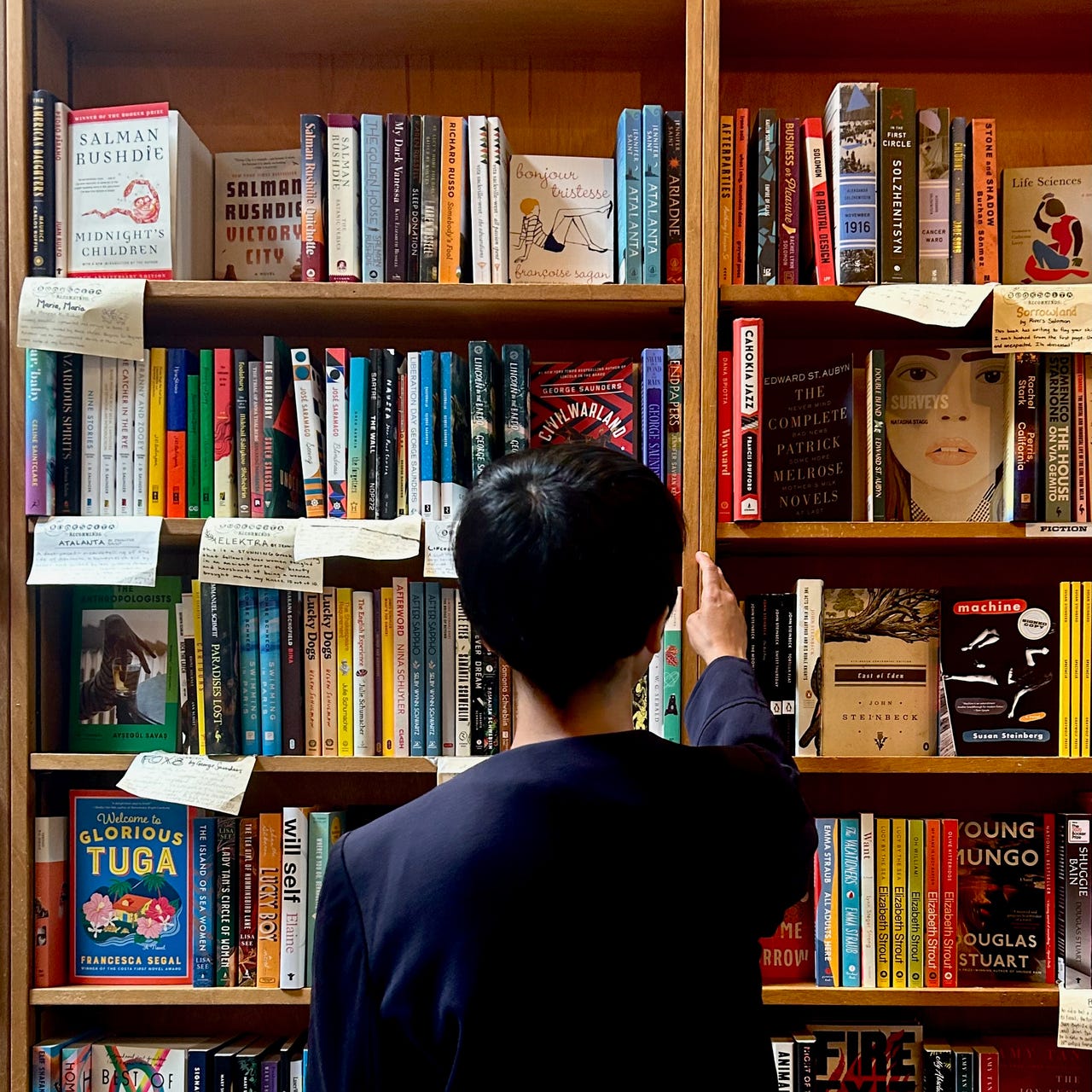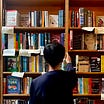The Unknown Literary Canon is a vital publication that aims to give readers the key to sharpening their feminism into a blade that protects all women and all people. It highlights how patriarchy impacts each of us and offers insight on what we as individuals can do to make the world a place that is safe for everyone.
The writing of under-known/overlooked literary fiction, literature by Lesbian women and feminist theory are the vehicles with which Jo highlights how and what equality to all women and all humans could and should look like.
The writing moves through review and reflections to highlight the gaps that we might slip into if we are not careful. Asking you to evaluate your position, asking you to look at your life and make the effort to decenter whiteness and fight the fight of intersectional feminism, to fight for those who do not have the power that we might have inherited by luck alone.
I encourage you to read through the essays on the Unknown Canon, each one I have read taught me something important with a kindness that is unmatched. Subscribe below.
What are your pronouns?
she/her
How long have you been a writer and what draws you to writing?
That’s such a difficult question to answer! Difficult because I’m still struggling with the notion that I am a writer.
I’ve loved reading and writing since I was five or six years old – but both had been intensely private for me. My Substack is the first time I’ve taken my own writing seriously.
What draws me to writing is that there are messages I want to put out into the world; my goal is to leave the world a better place – however small – than it would have been if I hadn’t been in it. And I fell in love with writing itself through my Substack.
Your writing and publication has a strong and beautiful voice, how did you come to start the Unknown Canon and what motivates you to continue?
I initially started Unknown Canon because I couldn’t find a resource for lesbian literature. In the first few months, readers commented that my writing was very feminist. This makes sense; I’ve been a survivor advocate for many years, I’m very social justice minded, so the person that I am kept creeping into my writing. Eventually, I began writing about feminism. Most of the feminist writers I cover are still lesbian or queer, though I don’t think many people notice that.
How do you approach growing someone's feminism from exclusionary to intersectional? How do we begin conversations that question the diversity of even someone's base interests?
This is such a great question! The first step, as is the first step with so many difficult things, would be admitting that traditional, liberal, Western feminism has a problem, that it is exclusionary. When I get trolling, it’s usually from women who struggle with that. First overcoming resistance to that – and to the belief that you the individual has no flaws in your previous thinking, and admitting that you have biases to overcome, too – that’s the beginning of intersectional thinking. In my work, I never call out anyone by name – I only call out things that happened, and use that to nudge people to becoming more open-minded. I’ve received a few messages from people saying I changed their mind about something, or that they didn’t “like” feminism until they read my Substack. That gives me hope.
Has your understanding of the literature you explore in the Unknown Cannon changed over the course of your writing?
Yes, my understanding of literature has definitely changed! I’ve been a reader since I was a young child, but writing about that reading gave me so much insight into the process the writer goes through when writing. It’s made me a more compassionate and understanding reader.
As a writer I often feel fearful of overstepping a line I did not understand or making a mess of words that inadvertently harm someone. Do you experience this fear and how do you push through?
All the time.
I’m a cis-lesbian of color writing about Black feminists (eg., bell hooks and Angela Davis) and sometimes about trans people. I’m always afraid I’ll say something hurtful. I try to write about both in ways that will help people listen to those voices and not stop after reading mine.
One thing I’ve heard is that if you have something negative to say about a group with less systemic privilege than your own, you should really re-think it and make sure it’s not coming from a place of unconscious bias. I haven’t said anything negative, I can’t imagine a circumstance in which I would, but that seems like a good approach.
I also pay attention to reader feedback. So if something doesn’t make sense or fewer people read it, I know it was off, and I adjust my writing in the future. It’s great that a platform like this one allows us to get reader feedback so quickly, I think that makes it particularly powerful for new writers.
What urges you to write each piece, what inspires the pieces that provide vital words that speak to how we can educate ourselves to move forward into a future for all?
The inspiration for each essay is the most difficult part of all. Once I have the inspiration, the thesis and the rest of the essay follows quickly.
I take inspiration from the literature I read, and from the work I do.
One of my goals with using literature as inspiration is to make the philosophy in that literature more accessible. A lot of people won’t read bell hooks or Andrea Dworkin, but maybe they’ll read my essay about them.
How do you see the Unknown Canon developing in the years to come? Are there any topics that you are feeling driven to write about in the future?
I have a lot of topics I want to write about! More about preventing sexual violence, which is something I’m passionate about and have experience in – I hope that my words might help people understand it better and be more willing to talk about it.
As for developing in the future, I also have a lot of hopes for it to keep growing. I hope one day I’ll become a published author.
What are your favourite pieces of queer literature from both an educational as well as purley enjoyment?
Educational: I love Andrea Dworkin, Angela Davis (she came out as a lesbian in 1979), and Audre Lorde. It’s really interesting to me that so many lesbians were also some of the best feminist thinkers in history.
For enjoyment/literary fiction, I love Virginia Woolf, Constance Debré, and Eva Baltasar. My guilty pleasure is Jane Rule’s Desert of the Heart - I’ve read it at least a dozen times.
Would you share your favourite queer substacks as well as what you want to read more of from lesbian and queer authors on substack and beyond?
I really like @
@ & – they’re all such sweet people, you can almost feel their kindness through the screen.I’m always looking for more literature written by lesbians and queer women. There’s a paragraph in an essay of mine that many people shared. It’s about why I seek that type of literature:
It makes you an outcast, but being an outcast frees you from the shackles of expectation of feminine submissiveness. Life, liberty, and the pursuit of happiness, which was asked in the Declaration of Independence and granted to men is more readily available to lesbians. That means you might fail, of course, but you’re free to fail. All of this allows you to look at the women in the world, and know what could be. It’s not that it’s all wonderful, but above all, you are free.
Thanks so much for reading another interview on the Lesbian Literary Library, if you’d like our next post, which will be a piece of writing on Lesbian as Gender from Unknown Canon, delivered to your inbox please subscribe and please also subscribe to her!









I couldn’t be more honored by this truly surreal thank you so much 🥹 Jo is one of my favorite writers on Substack as well. Especially as someone new to the lesbian community. Their work has been such a great learning resource for me.
This is lovely!! Jo runs one of my fav Substacks🩷